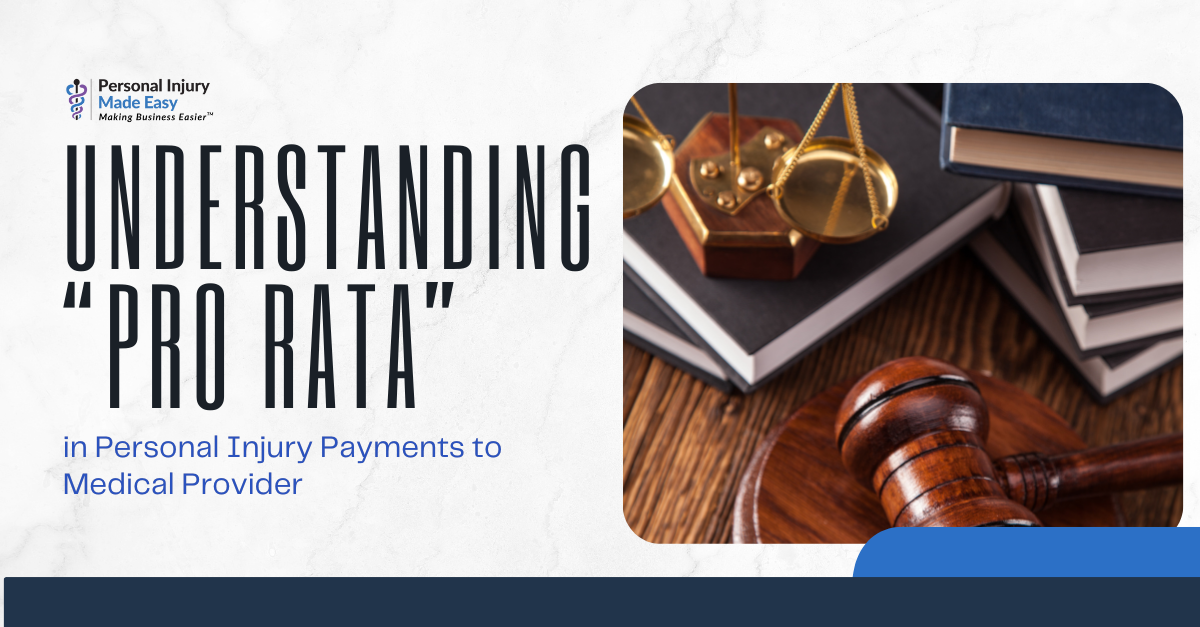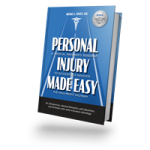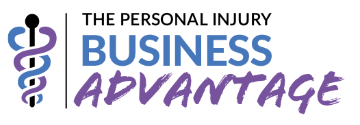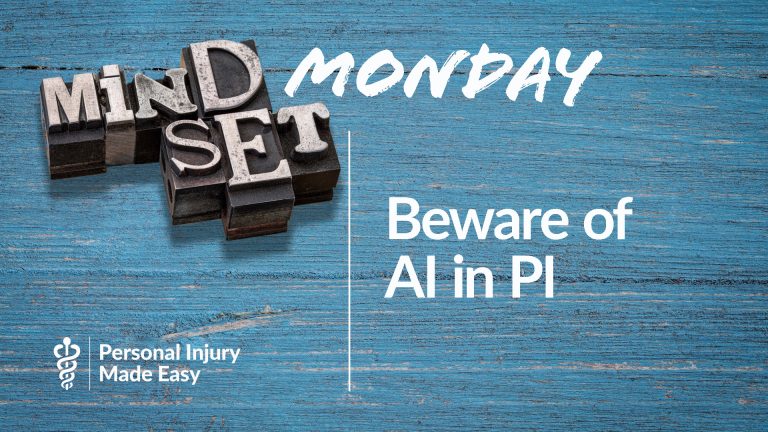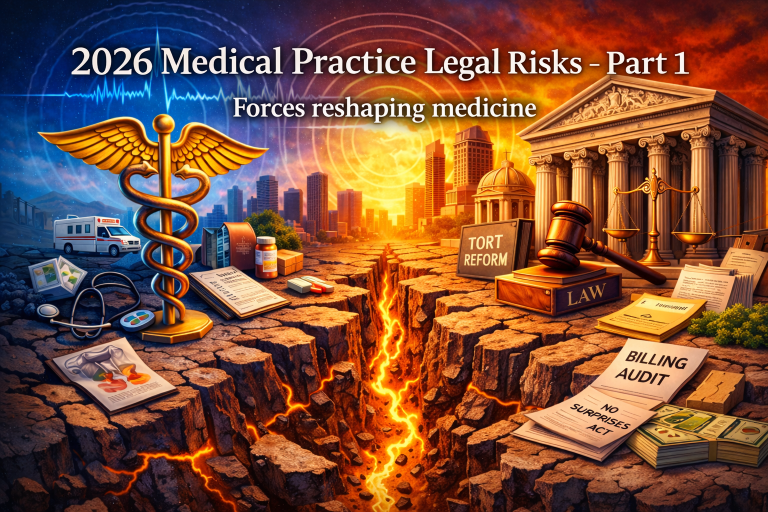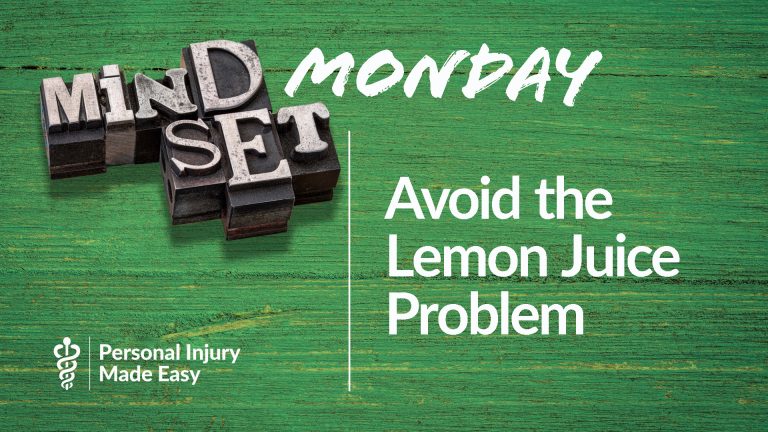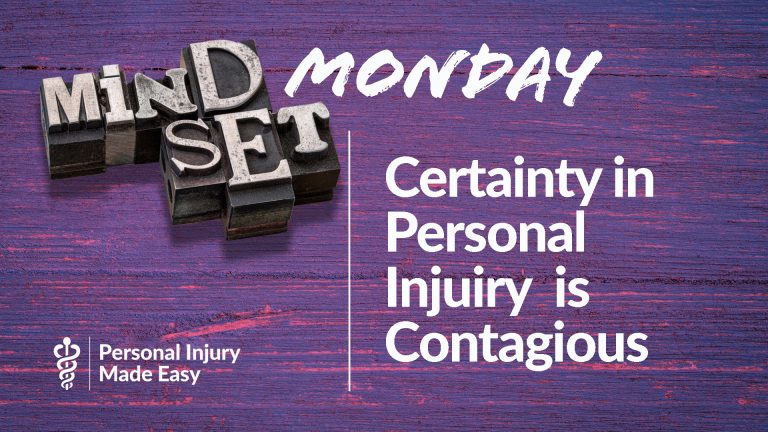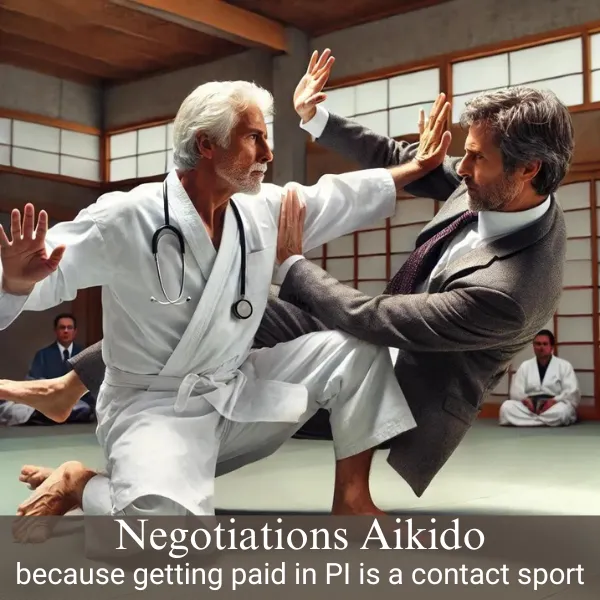
Winning the Negotiations Game in Personal Injury
Gaining Respect Over Being Liked: Winning the Negotiation Game in Personal Injury
I want you to internalize a critical truth that separates thriving practices from struggling ones in personal injury:
In dealing with attorneys and law firm staff, it isn’t about being liked — it’s about gaining their respect.
Being liked is easy. Being respected is powerful.
When it comes to personal injury, every medical provider, staffer, or office manager faces the same reality: You must learn to negotiate — with two very different types of attorneys.
First, you have those you trust — and sometimes, they might take advantage of that trust without even realizing it. Getting 10% or 20% more from this trusted group is a profit difference maker.
Second, you have those who will try to take advantage of you almost every time — the trained warriors who negotiate and fight for a living: with adjusters, defense counsel, judges, and arbitrators. Getting 50% to 100%+ more from the initial offer from this difficult group is a profit game changer.
Law firms argue for a living — your office heals for a living.
It seems like an unfair match, right? Wrong.
Winning these negotiations starts by identifying the leverage you already have — the value you bring to their case — and then knowing when, what, and how to assert it.
Your diagnosis, your causation connection, your treatment, your healing, and your billing is what every injured patient needs in every PI case. They don’t always need an attorney. And when attorneys are arguing to adjusters, judges and juries about compensation for their client, it is the medical treatment, the healthcare story, the medical billing, the future medical needs, and the support for the pain and suffering assertions of the patient that are the compensation focal point: yes, your part.
I wish all law firms appreciated, valued and respected your role. Few do. Because they are immersed in their own daily battles with their direct opponents: insurance adjusters, defense attorneys and judges. You are an indirect battle, which shifts to a direct one generally post-case resolution when it is time to pay out the proceeds recovered thanks in part to your work.
When it comes to being paid in personal injury, make no mistake:
Negotiating with law firms is a contact sport.
The playing field for this game is comprised of meetings, phone conversations, texts and emails.
These communications aren’t easy. They can be anxiety-filled, frustrating, even intimidating. But you cannot let the pressure tactics, delays, or dismissiveness put you down. You must stay strong.
And you must remember: Respect beats being liked every time.
Negotiation is a Life and Business Skill — and You Can Learn to Master It.
Negotiation isn’t just for attorneys. It’s a life skill and a business skill.
You’ve been negotiating your whole life — with kids, with employees, with vendors, even with yourself. The difference now is you’re facing a far more aggressive, skilled opponent.
But you can absolutely out-maneuver, out-leverage, and out-negotiate them. Mastery takes time and training.
Anyone can learn this — any staffer, any doctor, any office manager. It’s about mindset and skill set combined. It’s about finding leverage over lawyers, and learning what, when, and how to apply that leverage.
That’s why I teach, coach and support what I call Negotiations Aikido — inspired by the martial art built to defend and win against seemingly stronger opponents. It’s not about brute force. It’s about leverage, redirection, timing, and composure.
And within that, I developed the DISRUPTIVE Method of Negotiations Aikido:
- D — Define Your Value
- I — Identify the Real Issues
- S — Spot and Stop the Fouls
- R — Reassess ROI and ROR
- U — Uncover the Facts
- P — Prioritize, Persist, and Practice Patience
- T — Trust but Verify
- I — Inject Advantages Strategically
- V — Value Versatility
- E — Employ Emotional Awareness
You might think “E” — emotional awareness — is the key when dealing with difficult people. It’s essential, yes, but it’s only one part of a complete strategy.
Real negotiation power comes from being skilled at the entire DISRUPTIVE process.
The Payoff: Gaining Respect, Results, and Relationships
Negotiations in PI are a contact sport. When you master this, you gain three things:
- You gain Respect — meaning you focus on doing it right, not on being liked. You don’t just heal, you’ve mastered the nuances of PI and dealing with contested, tense situations as a professional. That’s key in PI.
- You gain ROI (Return on Investment) — meaning you get paid more. That means more investment into your community, your team, your business, your family, and you.
- Your ROR (Return on Relationship) improves — meaning you get more patients from the good law firms. The better attorneys make you a go-to, seeing you not just as a healer, but as a PI value driver who will better represent the healthcare story and billing attacks that come from defense attorneys at deposition and trial.
In other words, you don’t just heal their clients, you help bring about higher case recoveries. Those are the relationships the good attorneys value. And the difficult law firms? If they need a push-over, they will need to look elsewhere. If they want a value driver who has earned the right to be properly paid and who can defend their treatment and their billing, they now have a provider they can trust for their better cases.
Gaining that level of respect, results, and relationships transforms a PI practice.
In Closing: Choose Respect
Whatever path you take, whatever method you use, remember this:
It’s not about being liked. It’s about gaining respect.
Respect is what gets you paid.
Respect is what builds strong relationships.
Respect is what fuels sustainable, profitable success in personal injury.
And respect is earned — by learning the skills, staying composed, and mastering negotiations in personal injury: because getting paid in PI is a contact sport. That’s why I developed the DISRUPTIVE Method of Negotiations Aikido, and am pleased to serve as your Negotiations Sensei.
Take the first step.
Learn it.
Practice it.
Own it.
Because you — and your practice — are worth it.




